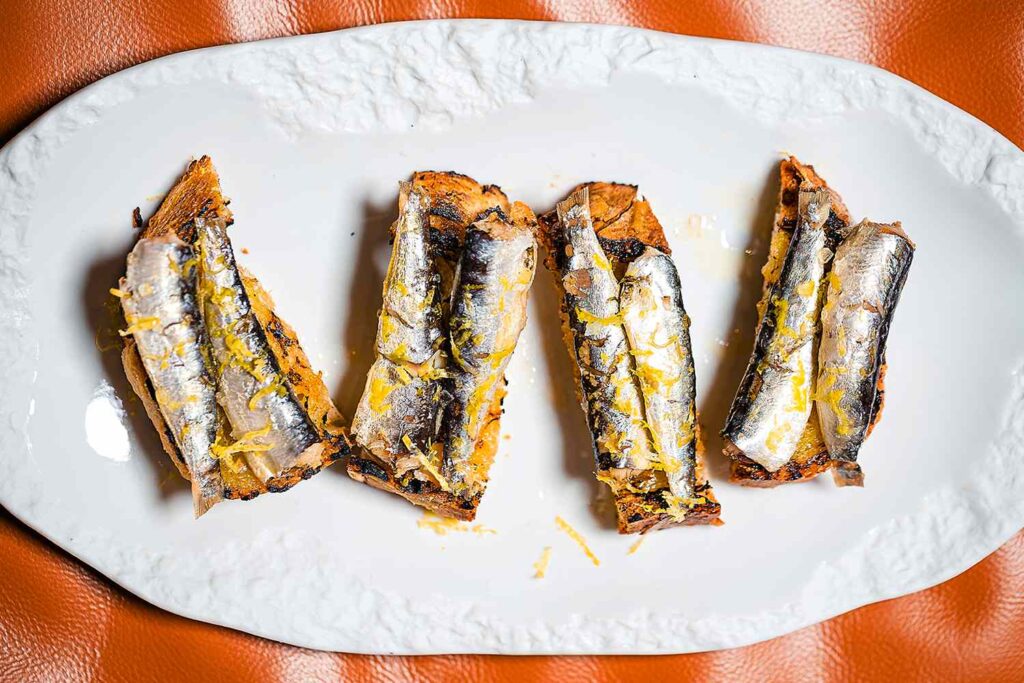Food & Climate
Traders and consumers have warned of a recent shortage of tinned sardine in UK, due to warmer waters off the coast of Morocco, the Arab country that is the world’s largest exporter of this type of food, which is eaten by humans and pets alike.
Retailers and suppliers say the collapse in Moroccan catches – which account for roughly 60% of the UK’s tinned sardine imports – is hitting supermarket and pet food shelves alike.
Experts point to extreme weather and climate change affecting fish stocks, and UK suppliers are scrambling to find alternatives, according to a report seen by “Food & Climate” platform.
Morocco’s Ministry of Agriculture has confirmed that rising sea temperatures are contributing to shrinking sardine stocks. Sardines thrive in water around 18°C, but waters off Morocco have reached 21–23°C, forcing the fish to flee to cooler areas.
Scientists say Mediterranean sardines are “having trouble with their food supply” as plankton levels fall in warmer seas, causing the fish to ingest more microplastics and grow thinner.
The country has also endured record drought conditions, with analysts warning this “could mean there is less food to import” to the UK.
Warmer British seas

A recent Cefas study projects that warmer British seas may allow sardines to expand northward, potentially making them a future ‘winner’ in climate change. Such shifts may help UK stocks in the long run, but in the short-term Morocco’s collapse dominates supply.
But suppliers say they are scrambling to avert stockouts. John West owner Kingfisher Foods said it is “aware of the industry-wide sourcing challenges in Morocco” and is working with other fisheries to “maintain the highest possible availability”.
Importantly, Kingfisher noted it sources sardines from across Europe – including UK waters – to bolster supply.
Princes, another UK canned-fish supplier, confirmed that Moroccan sardine catches “have been experiencing disruptions” after the annual fishing closure, and said it is “actively reviewing all sourcing options”. Kingfisher’s sales and marketing director Chris O’Rorke said the company “made a considerable effort at the end of last year to get as much product packed as possible” to meet demand, and kept customers stocked through spring – but he remains “concerned about availability for the rest of the year”, according to “The Sun“.
Moroccan tinned sardines
Sardines are an affordable, nutritious snack, offering people an easy way to get their daily requirements of protein and omega-3 fatty acids, among other key nutrients.
Since Morocco is a major exporter of the popular snack (50% of tinned sardine) — supplying 58% in the European Union, 15% in Africa, 9% in the United States, and around 7% in Asia, per the Grocer and Morocco World News — reduced fish levels in the Atlantic will likely send shockwaves through the global food system.
If prices rise too high, consumers will have to switch to other low-cost protein sources. Shortages will also affect fishermen and suppliers who depend on healthy fish stocks for their livelihoods.
The Grocer reported that retailers, including the British supermarket Asda, are already out of stock of some sardine brands sourced from Morocco.

Rising ocean temperatures and overfishing have a negative impact on sardines, other marine animals, and aquatic ecosystems. Many fish — including sardines — are migrating to cooler waters, forcing whales, dolphins, and other large marine creatures to change their diets to survive.
And while sardine stocks may not be plentiful at the moment, invasive fish and crab species, such as blue crabs, snakehead fish, and blue catfish, are taking over in Italy and Maryland, according to “the cool down“.

